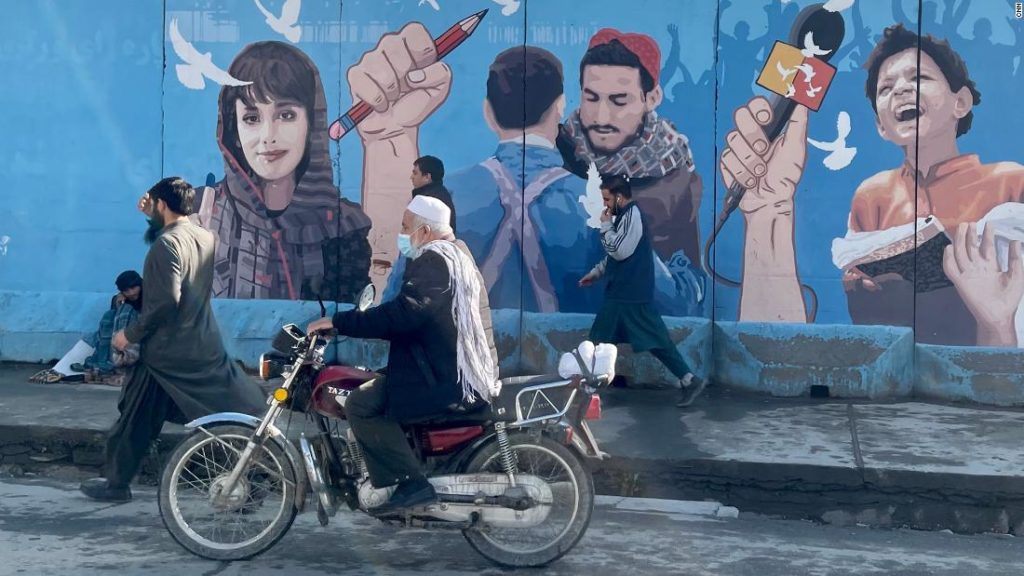The National Intelligence Council assessed that the progress made over the last two decades “probably owes more to external pressure than domestic support, suggesting it would be at risk after coalition withdrawal, even without Taliban efforts to reverse it.”
“Although the Taliban’s fall officially ended some policies (restricting the rights of women), many continue in practice even in government-controlled areas,” it stated.
“Afghanistan’s progress since the end of Taliban rule toward meeting broadly accepted international standards for the conditions of women has been uneven, reflecting cultural norms and conflict,” the report’s authors wrote, noting that progress that was largely centered “in cities and ethnic minority enclaves, where violence is lower and women had more freedom before Taliban rule.”
“Gains are less pronounced in rural areas, where roughly 70 percent of Afghans live,” the report stated. “Nationwide, child marriage and stoning for adultery persist, and rape victims are killed by relatives for shaming their families.”
A prior US intelligence report assessed that the Afghan government would struggle to maintain control without the support of the international military coalition, which President Joe Biden said would leave by September 11.
Biden administration officials have warned that the Taliban would not achieve international legitimacy by seizing power by force or by limiting the rights the rights of women.
“If the Taliban has any expectation of getting any international acceptance, of not being treated as a pariah, it’s going to have to respect the rights of women and girls,” Secretary of State Tony Blinken said in an interview with ABC News in mid-April. “Any country that moves backwards on that, that tries to repress them, will not have that international recognition, will not have that international status, and indeed, we will take action to make sure to the best of our ability that they can’t do that.”
However, the NIC report found that while the Taliban’s “desires for foreign aid and legitimacy might marginally moderate its conduct over time,” it is likely that “in the early days of reestablishing its Emirate, the Taliban probably would focus on extending control on its own terms.”
Report says Taliban’s approach to women’s rights has not changed
It assessed the Taliban’s approach to women’s rights has not changed, and “if the Taliban were again Afghanistan’s dominant power, we assess that any prospect for moderating the group’s policies toward women would lie with ethnic minorities’ ability to maintain local variation and technological development since the Taliban’s previous rule.”
Last week, bipartisan senators on the Senate Foreign Relations Committee voiced concerns about a potential backslide in women’s rights in Afghanistan in a hearing with US Special Representative for Afghanistan Reconciliation Zalmay Khalilzad last week,
“We have worked for two decades alongside our allies to advance the rights of not just women and girls, but other ethnic minorities in Afghanistan. And we can’t let those two decades of hard work be ignored in peace talks. We owe it to the women and girls to ensure that their hard-fought rights are preserved,” said Shaheen, a New Hampshire Democrat and the only woman on the committee. “Sadly, I believe an arbitrary deadline for … our withdrawal of forces in Afghanistan risks those efforts.”
Khalilzad said the matter was “important to (him) personally,” having played “a small role as ambassador to Afghanistan in the early 2000s in encouraging the adoption of constitutional provisions that have helped the rights of women” and fighting “for the inclusion of women on the Islamic Republic’s negotiating team.”
“We are likewise pressing for women’s inclusion in any future peace efforts,” he said.
“While the Taliban may deride women as tokens of a human rights agenda set in Western capitals, they are wrong. And the threat they, and their allies, pose to us remains quite real,” Dr. Habiba Sarabi, Fawzia Koofi and Sharifa Zurmati wrote.
“We press on because we know that an inclusive Afghanistan is the only path to a lasting, just peace and end to the war. We are not alone: Women of all walks of life do not want to return to an era in which their fundamental rights counted for nothing,” they wrote.
You may also like
-
Afghanistan: Civilian casualties hit record high amid US withdrawal, UN says
-
How Taiwan is trying to defend against a cyber ‘World War III’
-
Pandemic travel news this week: Quarantine escapes and airplane disguises
-
Why would anyone trust Brexit Britain again?
-
Black fungus: A second crisis is killing survivors of India’s worst Covid wave

